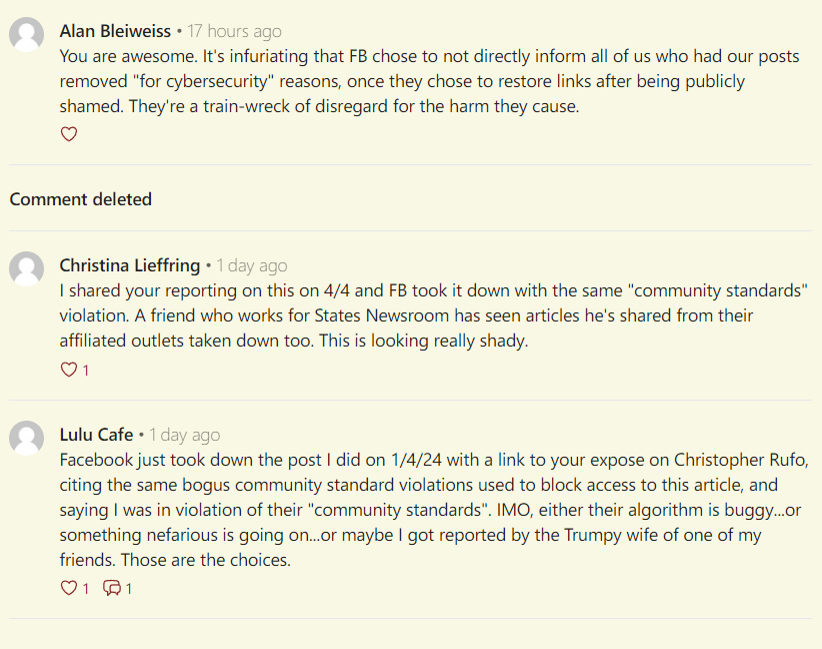Be careful what you say on social media in Britain.
English law permits mass surveillance of the big social media platforms, according to Charles Farr, the director-general of the Office for Security and Counter-Terrorism, in a statement published last week responding to a case brought by Privacy International, Liberty, Amnesty International, the American Civil Liberties Union, Bytes for All, and five other national civil liberties’ organizations.
While communications between British residents can only be monitored pursuant to a specific warrant, those that qualify as ‘external communications’ can be monitored under a general one, under the Regulation of Investigatory Powers Act 2000.
Since most social networks are US-based, they qualify as external.
‘British residents are being deprived of the essential safeguards that would otherwise be applied to their communications—simply because they are using services that are based outside the UK,’ says Privacy International.
‘Such an approach suggests that GCHQ believes it is entitled to indiscriminately intercept all communications in and out of the UK.’
One Conservative MP, David Davis, accuses ‘the agencies and the Home Office’ of hoodwinking the Commons, although Farr says the matter was expressly raised in the House of Lords, according to The Guardian.
It was evident in 2000 that there was an international element to electronic communications. After all, telexes had been with us for decades, and emails were mainstream in the 1990s.
None of this would have been brought to light without the revelations from Edward Snowden and the subsequent legal challenge at the Investigatory Powers Tribunal, on the grounds that ‘The absence of [a legal framework under which surveillance of citizens takes place] appears to be in breach of the European Convention of Human Rights, Article 8, which provides the right to privacy and personal communications, and Article 10, which provides the right to freedom of expression.’
If the decision of the Tribunal falls on the side of the civil liberties’ groups, then that could be useful to similar groups here. We’ve already seen the Court of Appeal find the arguments of the Attorney-General more compelling than those of Kim Dotcom and others when it comes to balancing search warrants and the right against unreasonable search and seizure in the Bill of Rights Act 1990. While not directly related, pragmatism outweighed specificity, and it’s not a step, I imagine, that proponents of the Act would feel at ease with.
When it comes to foreign powers exerting influence on our agencies here, especially with indictments that were so grand for what is, at its core, a civil copyright case, one would have expected specificity would be a requirement. I also would have expected such agencies to have the legal experts who would have used very tight language in an international case against a foreign national.
The worrying trend with both scenarios is that things are taking place against citizens as though they were a matter of course, not subject to state agencies taking great care and being aware of individual human rights.
As communications are global today, then the frameworks need to start from the point of the view of the individual and protections afforded to one.
Here, s. 21 of the Bill of Rights Act 1990 should protect citizens when it comes to reasonable expectations of privacy, and cases tend to start from the interest of the person, who must be informed of the search or surveillance.
The distinction between domestic and ‘external’ has not existed for years: all our websites, for instance, have been hosted abroad since we went online in the 1990s. Anyone who has used Gmail, Hotmail, Zoho and its rivals would be using external communications. Yet I do not know of anyone who would have consented to surveillance without grounds for suspicion, and laws need to balance the external requirement—where threats are perceived to come from—with the expectation of privacy individuals have on everyday communications.
The Search and Surveillance Act 2012 is tempered perhaps by the tort of privacy and some precedent, but it’s the new Government Communications Security Bureau Amendment Act 2013 that generates similar worries to those in Britain, because specificity has gone out the window.
We already have had an Attorney-General claim wrongly during the bill’s second reading, ‘As I say, this bill does not represent an extension of powers but a clarification,’ when even a casual comparison between the 2003 act and the new one suggests a marked increase of powers. The Prime Minister has suggested similarly in saying that it was incorrect that the ‘GCSB will be able to wholesale spy on New Zealanders.’
The requirement for the GCSB’s monitoring of foreign intelligence has been removed in s. 8B, and any intelligence it gathers in the performance of the section is not subject to the protections afforded to New Zealanders under s. 14. Under s. 15A (1), the ‘interception warrants’ can apply to a class of people, covering all communications sent to or from abroad. These warrants can be very general, no threat to national security is required, thus eroding the expectation of privacy that New Zealanders have.
The process through which the bill went through Parliament was disgraceful. Dame Anne Salmond noted:
During the public debate on the GCSB bill, Sir Geoffrey Palmer and Dr. Rodney Harrison QC spoke out about its constitutional implications, while I addressed its implications for democratic rights and freedoms in New Zealand.
In reply, the Attorney-General made ad hominem attacks on Harrison, me, Sir Geoffrey and other critics of the legislation during the debate on the GCSB bill, under Parliamentary privilege, and without answering the concerns that had been raised.
These attacks on independent agencies and offices, and on individuals suggest a campaign of intimidation, aimed at deterring all those who oppose the erosion of human rights in New Zealand from speaking out, and making them afraid to ‘put their heads above the parapet’.
If we think our laws could protect us against the sort of mass surveillance that is legal in Britain, then we are kidding ourselves. By my reading, interception warrants can take place under the flimsiest of reasons, almost in a desperate attempt to catch up with these other jurisdictions, rather than considering New Zealand values and what our country stands for.
If Britain is successful at amending the scope of RIPA 2000, then that would be a useful first step in redressing the balance, acknowledging that communication is global, and that citizens should have their privacy respected.
One hopes such action inspires New Zealanders to follow the path of Privacy International and others in questioning our government’s expanded surveillance powers over us. Those who are already leading the charge, I take my hat off to you.








One thought on “When it comes to mass surveillance, forget specificity”